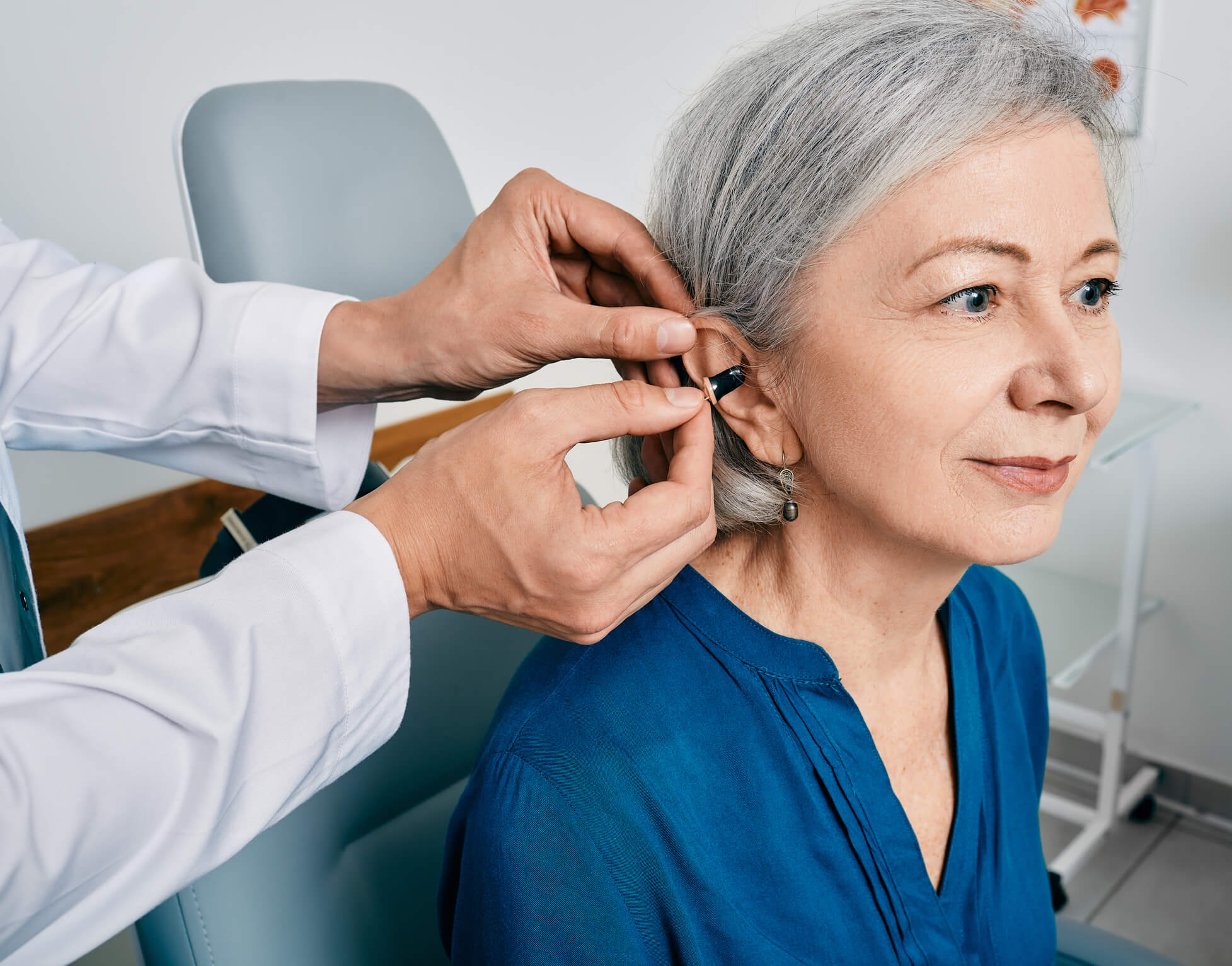Table of contents
Silent Symptoms: Recognizing the Signs of Hearing Loss in Seniors
Hearing loss is a common issue among seniors, with about one in three older adults experiencing some degree of auditory challenges. Unfortunately, many seniors may not even realize they are experiencing hearing loss, as the changes can be gradual and subtle. It is crucial for seniors and their loved ones to be aware of the warning signs and to take action early.
Signs of Hearing Loss in Seniors
Hearing loss is something that can happen slowly over time. Because of this, many miss the initial symptoms:
- An inability to hear and understand speech in noisy environments, leading to misunderstandings or inappropriate responses in conversations.
- Difficulty hearing in noisy environments such as restaurants or crowded rooms.
- Asking people to repeat themselves or speak louder.
- Difficulty hearing high-pitched sounds like children’s or women’s voices.
- Turning up the volume on the television to a level others find to be too loud.
- Tinnitus, or ringing in the ears.
- Avoiding social situations or withdrawing from others due to difficulty hearing.
Ways for Seniors to Protect Their Hearing
“Though not all hearing loss risk factors are preventable,” says Amy McDermott, a speech-language pathologist at EmpowerMe Wellness, “it is possible to take measures to protect your hearing.” Here are a few of her best practices:
- Protect your ears from loud noise by wearing protection, such as earplugs, when in noisy environments.
- Quit smoking – it can damage the blood vessels that supply oxygen to the inner ear, leading to hearing loss.
- Manage medical conditions, such as diabetes, cardiovascular disease, and high blood pressure. Work with your healthcare provider to identify care options and lifestyle changes that can help keep these factors under control.
- Receive regular hearing checks and allow for early intervention and treatment.
- Stay physically active; regular physical activity can improve blood flow to the ears, which can help you maintain your hearing.
- Observe a healthy diet by including food rich in vitamins and minerals.
- Consider hearing aids, which have been shown to slow the progression of hearing loss in some cases.
If left untreated, seniors with hearing issues can experience higher rates of social isolation, depression, and anxiety, as well as cognitive decline, difficulties communicating, and lower quality of life. It is crucial for caregivers and loved ones to take action as soon as the initial symptoms are recognized.
“Family members and caregivers can help identify hearing loss in seniors by closely observing their behavior,” says McDermott. “Pay attention to communication difficulties, pain, discharge, swelling, or redness around the ear, and signs of social isolation. Observe their reaction to sounds – if they don’t respond to sounds that would typically cause a reaction, like the ring of a doorbell or phone, this could be a sign that it’s time to take action.”
“Though not all hearing loss risk factors are preventable, it is possible to take measures to protect your hearing.”
Medicare and Hearing Loss
Though Medicare does not currently cover the cost of hearing aids, routine hearing exams, or hearing aid fittings, there are some situations where it may cover the cost of a hearing test. For example, if you have a medical condition that affects your hearing, Medicare may cover diagnostic hearing and balance examinations. Some Medicare Advantage plans may offer coverage for hearing aids and related services. It is important to check with your plan and see what services are covered.
Available Resources
Those with hearing loss should always undergo a thorough evaluation by an audiologist to determine the best treatment options for their specific needs. General resources include:
- Audiologist-recommended treatment options
- Counseling and support groups specifically for seniors with hearing loss
- Assistive technology, such as personal sound amplifiers and captioned phones.
- Organizations like the Hearing Loss Association of America or the American Speech-Language-Hearing Association.
- The Help America Hear program provides financial assistance to those who can’t afford the cost of hearing aids, which can be expensive.
By taking action early, seniors can help prevent hearing loss and improve their quality of life. Proactive treatment helps seniors stay connected with the world around them. If you or a loved one are experiencing symptoms of hearing loss, meeting with an audiologist is key.
It is important to raise awareness about the prevalence of hearing loss in seniors and encourage individuals to take action to address it. By doing so, we can help seniors maintain their independence, social connections, and overall well-being.
To begin speech-language pathology (SLP) sessions, ask your physician or audiologist for recommendations. If you are a resident of a senior living community with an EmpowerMe therapy team on site, let a therapy team member know you are interested, and we will set up your first appointment to evaluate your needs and personalized goals.
To learn more about SLP programs at EmpowerMe, contact us here or read about our therapy services here.


